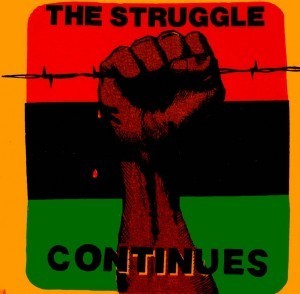Writing Novels Is Hard, But I Enjoy The Struggle

I'm 24,000 words into my new novel and I can't help thinking about the process I'm going through as I hammer this story out, word by word.
Novels take a long time to write. Well, they take me a long time. Some people bang out several in a year. I'm happy if I can write just one. The last novel I finished was a sci-fi comedy called Cargo Cult. From beginning to end, it took me more than ten years. Even when it just takes a year, it's far too long to plot it in detail and then just write what you plotted. In a year of living with a group of characters in your head and a particular set of ideas you want to explore, you are going to find that things develop. Your initial plot can seem shallow and weak by the time that year is up, same with your initial characterisations, and your initial thoughts on your main themes. I'd go so far as to say that, if these things don't develop, mature, improve, deepen, and evolve while you write the book, you're just not thinking very hard about what you're doing.
Day-to-day, of course, nothing much happens. The actual mechanics, the craft, of putting words on screens is absorbing and takes up most of my resources. The choosing of every word, the structuring of every clause and sentence, the building of every paragraph, section, and chapter, are all such massive tasks with so many possible alternatives, that it is a miracle a mere human brain can do the job at all. Probably it can't. Sometimes I find myself 'satisficing' (as the brilliant Herbert Simon once put it) when I'd rather be optimising, but I'm limited by what my brain can do. I suspect the mark of genius in writing is the degree to which optimisation is possible for an individual writer.
The majority of thinking about the story, its characters and ideas, for me at least, goes on outside the periods of actual writing. I just don't have the capacity to do both well at the same time. Sometimes the need to understand some element of the story is a prerequisite to proceeding. I become lost in a miasma of ignorance and stupidity as I grapple with some important idea without which the story cannot proceed. Sometimes this is a technical issue – how long the tether needs to be for a Lunar space elevator, for example, or how the Polish secret service processes interviewees – and these are the easy ones. They can usually be solved with a half-hour of research (and some maths revision). Much harder are questions of how a character should develop – what's realistic, what's likely, and what's best going to serve the story? Or what the future will be like. I spent several days doing nothing but charting likely developments in science, politics, economics, society, healthcare, various technologies, etc., and their tangled interactions, over the next fifty years, before I could write my novel TimeSplash. And then did it all again, pushing it out an extra thirty years for The Credulity Nexus.
The hardest problems of all are the ones to do with concepts. For my novel Time and Tyde, I spent scores of hours reading books and papers on the physics of time travel (none of which appeared in the book, but I needed to get it straight in my mind before I could be confident I wasn't going to write something stupid). For Emissaries, the first book of my first "Omega Point" space opera, I agonised over the physics of space-warping in a similar way. Again, little of it got into the text, but I have to know that what is there is completely consistent with the science. Yet the hardest concepts of all are the ordinary human ones – love, jealousy, fear, dependence, and so on. For a recent short story which is to appear in an anthology called Hope, I decided I needed to understand exactly what hope is before I could start. Have you ever wondered? It took me a whole month to get my feeble brain around that one. A month in which I did nothing constructive at all and drove my wife crazy as I tried out new "insights" on her day after day. It's a kind of writer's block, I suppose, but one that always, always leads to a better story in the end.
Right now, I'm grappling with an old friend: the antipathy between empathy and psychopathy and how far a character whose nature is dominated by one can be led by circumstances towards the other. This conundrum and I went twelve rounds during the writing of my last-but-one novel, Mindrider, in which my protagonist was a rather unpleasant, alien brain parasite. I think I won on points, so I suppose it's hardly surprising it is demanding a re-match in my new work in progress, The Sentience Machine.
Writing a novel is such a long way from catching words as they float by and pinning them to the page. It is a massive decision-making process on multiple levels, coupled with a huge effort to understand at least some aspects of the people we are and the universe we inhabit, together with the presentation of all this work in a form that will stimulate and entertain. It is by far the most difficult, most satisfying, and most enjoyable work I have ever done.




